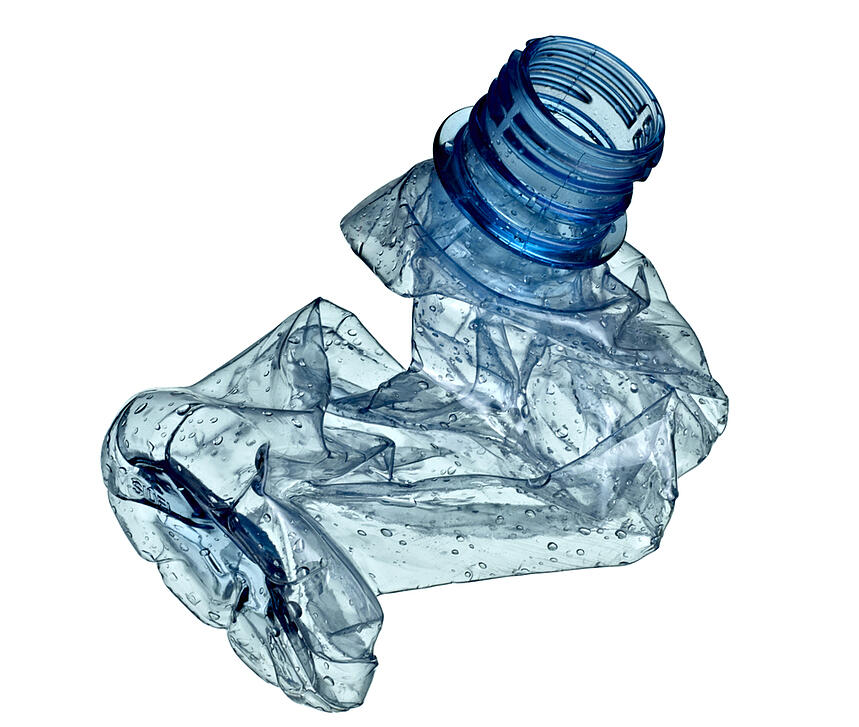Plastic waste is a serious environmental issue confronting all of us — particularly those of us who work in the flexible packaging industry. As a plastic packaging manufacturer, we’re very aware of the issues facing (and caused by) our industry, but the relationship of plastic to sustainability is more complex than it might appear.
In particular, there is a lot of confusion around issues of plastic waste and how those issues relate to other environmental concerns — particularly the biggest environmental problem of our times, climate change.
Why is Plastic Waste a Problem?

- Plastic waste is a growing environmental problem, particularly when it ends up in the ocean. The Pacific Garbage Patch is primarily composed of plastic waste (mostly microplastics) from China, Indonesia, the Philippines, Vietnam, Sri Lanka, and Thailand. There is a similar smaller (but growing) patch in the Atlantic ocean, as well.
- Plastic waste persists in the environment for many years, harming animals and ecosystems. Microplastics, that have been broken down through erosion or other processes, can be ingested by animals and damage the entire food chain.
- Recycling is a potential solution to the problems with plastic waste, but not if consumers/communities don’t recycle their plastics.
A Sustainable Approach to Plastic Packaging
The truth is that sustainability in packaging is much more complex than the issue of plastic waste. Plastic packaging is often the best way to safely get essential goods to consumers while minimizing spoilage and other damage.
Other common forms of packaging that are often seen as potential replacements for plastic (such as glass and paper) also come with their own set of environmental issues — most seriously, the much higher rate of carbon emissions associated with their production and the increased emissions associated with transporting them because of their weight.
There is no perfect packaging solution for sustainability. However, there will always be a need to get essential goods safely and securely to the people who need them. A sustainable approach to packaging means working to minimize or eliminate the environmental impact of this critical work.
Manufactured and used responsibly, plastic packaging can be a part of any company’s sustainability goals. Brands can reduce their environmental impact by reducing waste, using packaging that incorporates post-consumer recycled materials, and encouraging consumers to recycle their packaging.
Farnell Packaging Creates Sustainable Packaging Pathways

Farnell Packaging creates sustainable packaging pathways for brands delivering the essentials of life. We take the responsibility of packaging essential products very seriously – people suffer if we don’t get those products to them safely. At the same time, we all collectively need to change how we deal with plastic packaging.
Farnell Packaging strives to be a responsible community member and a great partner for all of our customers. We believe it’s our role to confront the problem of plastic waste head on — after all, the best way to make positive changes in an industry is from the inside! To work towards this goal, we’re constantly working to reduce our own environmental impact, and submit our data to the Carbon Disclosure Project so we can be accountable for our impact on the environment.
Farnell Packaging will support you in balancing your brand’s environmental footprint with the need to deliver essential goods to your customers. Your customers still need your products, so our goal is to help deliver those safely while reducing or eliminating the negative impacts of product packaging on the environment.
Sustainability is a moving target. It means something different for every producer, which is why we talk about developing “sustainability pathways.” We work to reduce the environmental cost of our need to transport and protect essential goods, but responsible use of plastics is often the best choice available — at least until more robust alternatives can be developed.
How Farnell Helps
- Farnell will help you define sustainability for your brand — the holistic balance of eliminating waste, reducing emissions, and minimizing environmental impact.
- Farnell Packaging is committed to all our plastic products being part of the circular economy by 2025, as well as including post-consumer recycled (PCR) plastic whenever possible.
- We’re also actively pursuing alternative materials (e.g. we’re now extruding compostable plastics) that will help to eliminate the waste problem entirely.
Looking for more information?
If you’d like to learn more about how Farnell Packaging can support your company by developing a sustainable packaging pathway, contact us today. We’d be happy to discuss options with you.
